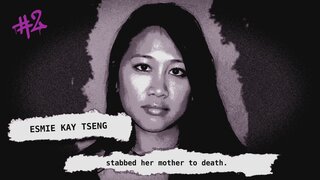Create a free profile to get unlimited access to exclusive videos, breaking news, sweepstakes, and more!
Teenager With Mental Health Issues Jailed Nearly 4 Years Without Trial, Treatment
“I worry that this is what I’m participating in — the warehousing of the mentally ill," said a judge.

By Jaime Lutz
The Mississippi criminal justice system has come under fire after BBC News and ProPublica published an account of a 16-year-old boy with serious mental health issues who was denied a trial, treatment, and health issues while behind bars.
Tyler Haire was 16 in 2012 when he allegedly stabbed his father’s girlfriend with a butcher knife, tearing her colon in half. She survived, and he was indicted for aggravated assault by a jury.
In his court hearing, Haire’s defense lawyer told the judge that Haire did not have “sufficient mental capacity” to understand his charges, and that he needed a psychiatric evaluation. After hearing Haire’s history of mental health problems—including diagnoses of seven different mental disorders and a history of violence from a young age—the judge agreed.
But Haire would not receive a mental health evaluation for three and a half years, Propublica reported. Nor was he given a trial, his regular medication, a high school education, or even a visit with a psychiatrist for years, the investigation found — all for a crime Haire claims he doesn’t even remember.
"I remember calling the cops and standing outside, so I didn't have to look at what I did. The only part I remember is me going to get water after looking for some Kool-Aid that I was left by my mother," he told the BBC and ProPublica. "After that, it's blurry."
Sheriff Greg Pollan and his deputies advocated for the boy, putting money in his comissary account, talking with him about TV shows, and continuing to call the state hospital in Whitfield for an update as to when Haire would finally get his psychiatric evaluation, ProPublica reported. At one point, Sheriff Pollan heard that Haire would get evaluated in just two weeks; it ended up taking two and a half more years. Another time, he moved down the waiting list to be evaluated for no apparent reason.
“I never figured that out,” Pollan said. “I don’t know how anyone could move him down the list, when they don’t know what his problem was, what his disease was, what his reaction was, what he was doing in the jail, all these monsters and aliens that he was seeing, all these mood swings that he was having. I never understood how they could make that assessment without knowing the true facts.”
During his time in jail, Haire showed erratic behavior, the investigation reported, throwing tantrums and complaining of hearing voices that told him to do things. But Haire could also be sweet and ernest, his jailers said, giving massages to his jail administrators or simply being content watching cartoons. Mostly, they said, he appeared to be suffering from a severe mental disability that left his development far behind his peers.
Four years after his arrest, Haire was finally examined by a psychiatrist and found to be legally competent to stand trial, to the shock of his jailers. Haire eventually took a plea bargain, and is expected to be released from jail in 2018.
Haire, the investigation suggests, is far from alone in waiting too long for a health evaluation before a trial. In Mississippi, 102 people accused, but not convicted, of a crime are waiting in county jails for forensic evaluations, including a few who have waited over 1,000 days.
Throughout the country, the wait times for defendant forensic services is worsening in 31 of 40 states surveyed by the National Association of State Mental Health Program Directors.
But the problem, the investigation said, is worst in Mississippi, where many sheriffs told ProPublica that jails have become a replacement for mental health treatment centers.
“I’ll say it because I’m the sheriff and I have no problem saying it: jail is not where the mentally ill need to be,” said Lincoln County Sheriff Steve Rushing. “They need to be in a facility getting treatment.”
Judge Andy Howorth, the senior judge in Calhoun County, said that he is haunted by cases like this.
“Of course,” Howorth said, “I worry that this is what I’m participating in — the warehousing of the mentally ill.”
[Image: Calhoun County]
























